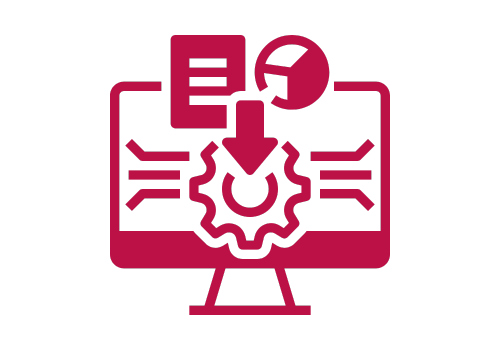Introduction to Data Warehousing
Unlocking Insights from Massive Data Stores
Why This Training?
In an age where data is the new oil, businesses require effective means to store, retrieve, and analyze their vast data reserves. Enter the realm of Data Warehousing - a solution that has revolutionized how organizations perceive and interact with their data. With this training, you will navigate the intricacies of data warehousing, equipping yourself with the knowledge to champion data-driven decisions.
Duration: 15 Hours (online / virtual live session)

Who Is This For?
Data professionals, IT managers, business analysts, and anyone aiming to harness the power of consolidated data repositories for enhanced analytics.

Course Overview
The Era of Data Warehousing: Journey through the evolution of data ecosystems and the crucial role data warehousing plays in amalgamating fragmented systems.
Decoding Data Warehouses: Dive deep into the essence and architecture of data warehouses, differentiating them from traditional databases.
See more
ETL - The Heartbeat of Data Integration: Grasp the fundamental processes of Extract, Transform, Load that breathe life into a data warehouse.
Design Philosophies Unveiled: Explore the contrasting visions of Kimball & Inmon, understanding the dynamics of Star and Snowflake schemas.
A Look at Leading Solutions: Familiarize yourself with the titans of data warehousing, from on-premises giants to innovative cloud solutions.
Data Warehouses vs. Data Lakes: Demystify the buzz around data lakes and delve into an insightful comparison with data warehouses.
Best Practices & Roadblocks: Master the art of building efficient, secure, and scalable data warehouses while foreseeing potential challenges.
Conclusion & Engaging Q&A: Synthesize your learnings, address curiosities, and carve out your next steps in the vast domain of data warehousing.

Training Highlights
Industry Expertise: Learn from seasoned professionals who have spearheaded data warehousing initiatives in top organizations.
Interactive Case Studies: Dive into real-world scenarios that showcase the transformative power of effective data warehousing.
Resourceful Toolkit: Gain access to essential guides, cheat sheets, and best practice manuals for a holistic learning experience.
Materials & Pre-requisites
Software Access
Familiarity with a DBMS or any data warehousing solution would be beneficial, though not mandatory.
Curiosity
A keen interest to understand the world of data consolidation and warehousing.
Write your awesome label here.
Training Content
Introduction to Data Warehousing
1. Introduction: Why Data Warehousing?
Objective: Set the context and highlight the importance of data warehousing in modern business environments.
- The evolving data landscape.
- The challenges of data silos and fragmented systems.
2. Understanding Data Warehouses
Objective: Define what a data warehouse is and what sets it apart from regular databases.
2.1. What is a Data Warehouse?
- Definitions and key characteristics.
- Benefits of data warehousing for businesses.
2.2. Architecture of a Data Warehouse
- High-level architecture: Source, staging, data warehouse, and presentation.
- Components like ETL processes, data marts, OLAP cubes.
3. ETL: Extract, Transform, Load
Objective: Introduce the foundational process of getting data into a warehouse.
3.1. The Role of ETL in Data Warehousing
3.1. The Role of ETL in Data Warehousing
- The importance of data integration and transformation.
3.2. ETL Processes
- Extracting data from source systems.
- Transforming data: cleaning, enriching, and conforming.
- Loading data into the data warehouse.
4. Data Warehouse Design Philosophies
Objective: Expose learners to the two main design methodologies.
4.1. Kimball vs. Inmon
4.1. Kimball vs. Inmon
- Differences between the bottom-up (Kimball) and top-down (Inmon) approaches.
4.2. Star and Snowflake Schemas
- Understanding facts, dimensions, and their relationships.
- The pros and cons of each schema type.
5. Popular Data Warehousing Solutions
Objective: Introduce the most popular and widely-used solutions in the market.
5.1. On-premises Solutions
- Oracle, Microsoft SQL Server, Teradata.
5.2. Cloud-based Solutions
- Amazon Redshift, Google BigQuery, Snowflake, Azure Data Warehouse.
- Benefits of cloud-based warehousing.
6. Data Warehousing vs. Data Lakes
Objective: Clarify the difference between two often-confused concepts.
6.1. What is a Data Lake?
- Definition and characteristics.
6.2. Comparing and Contrasting
- Use cases, flexibility, structure, and performance considerations.
7. Best Practices and Challenges
Objective: Share insights on successful data warehousing and potential pitfalls.
7.1. Ensuring Data Quality
- The importance of cleaning and validation.
7.2. Scalability and Performance
- Planning for future growth and efficient query performance.
7.3. Security and Compliance
- Ensuring data privacy and adhering to regulations.
8. Conclusion & Q&A Session
Objective: Wrap up the session, reinforcing the value of data warehousing, and address participant questions.
- How data warehousing fits into the broader data ecosystem.
- Answering questions and guiding further exploration.
WOMEN AI ACADEMY
Women AI Academy is a gender-equality and technology driven learning & development organization
Site Terms & Info
ETHOS AI Training & Consulting GmbH
Weihenstephanerstr.1281673
Munich-Germany
We are driven by the vision of making AI both ethical and accessible to everyone
Copyright © 2024 Brought to you by Ethos ai AI Training & Consultancy GmbH
Ali Hessami is currently the Director of R&D and Innovation at Vega Systems, London, UK. He has an extensive track record in systems assurance and safety, security, sustainability, knowledge assessment/management methodologies. He has a background in the design and development of advanced control systems for business and safety-critical industrial applications.
Hessami represents the UK on the European Committee for Electrotechnical Standardization (CENELEC) & International Electrotechnical Commission (IEC) – safety systems, hardware & software standards committees. He was appointed by CENELEC as convener of several Working Groups for review of EN50128 Safety-Critical Software Standard and update and restructuring of the software, hardware, and system safety standards in CENELEC.
Ali is also a member of Cyber Security Standardisation SGA16, SG24, and WG26 Groups and started and chairs the IEEE Special Interest Group in Humanitarian Technologies and the Systems Council Chapters in the UK and Ireland Section. In 2017 Ali joined the IEEE Standards Association (SA), initially as a committee member for the new landmark IEEE 7000 standard focused on “Addressing Ethical Concerns in System Design.” He was subsequently appointed as the Technical Editor and later the Chair of P7000 working group. In November 2018, he was appointed as the VC and Process Architect of the IEEE’s global Ethics Certification Programme for Autonomous & Intelligent Systems (ECPAIS).
Trish advises and trains organisations internationally on Responsible AI (AI/data ethics, policy, governance), and Corporate Digital Responsibility.
Patricia has 20 years’ experience as a lawyer in data, technology and regulatory/government affairs and is a registered Solicitor in England and Wales, and the Republic of Ireland. She has authored and edited several works on law and regulation, policy, ethics, and AI.
She is an expert advisor on the Ethics Committee to the UK’s Digital Catapult Machine Intelligence Garage working with AI startups, is a Maestro (a title only given to 3 people in the world) and expert advisor “Maestro” on the IEEE’s CertifAIEd (previously known as ECPAIS) ethical certification panel, sits on IEEE’s P7003 (algorithmic bias)/P2247.4 (adaptive instructional systems)/P7010.1 (AI and ESG/UN SDGS) standards programmes, is a ForHumanity Fellow working on Independent Audit of AI Systems, is Chair of the Society for Computers and Law, and is a non-exec director on the Board of iTechlaw and on the Board of Women Leading in AI. Until 2021, Patricia was on the RSA’s online harms advisory panel, whose work contributed to the UK’s Online Safety Bill.
Trish is also a linguist and speaks fluently English, French, and German.
In 2021, Patricia was listed on the 100 Brilliant Women in AI Ethics™ and named on Computer Weekly’s longlist as one of the Most Influential Women in UK Technology in 2021.

